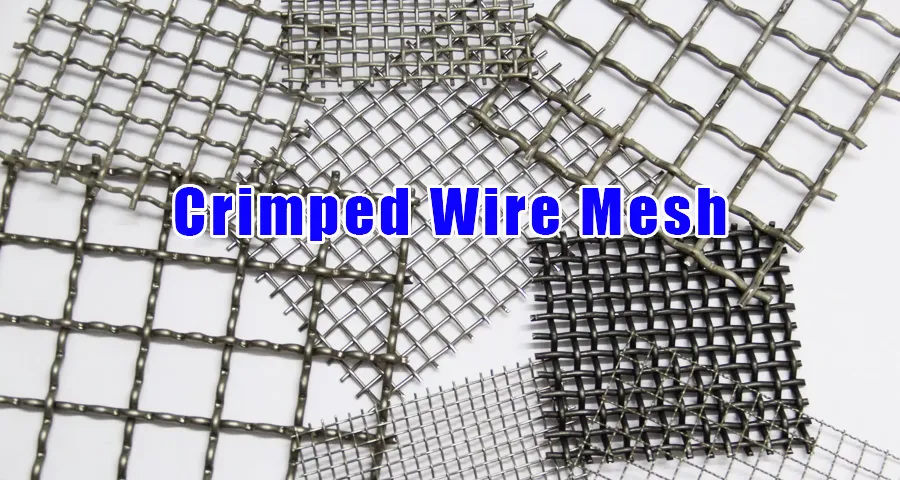-
+86 15030157877
-
sales@galvanizedmetalmesh.com
Juin . 08, 2025 02:00 Back to list
High-Quality Field Fence Wire Durable Farm Fencing Solutions
- Global Standards for Premium Field Fence Wire
- Material Science Behind High-Performance Barriers
- Manufacturer Comparison: Technical Capabilities Analysis
- Customization Parameters for Specific Environments
- Infrastructure Protection: Mining Sector Implementation
- Installation Efficiency Metrics and Cost Benefits
- Strategic Selection for Agricultural Security

(field fence wire)
Global Standards for Premium Field Fence Wire
Quality field fence wire
demands rigorous international certifications, with ISO 9001 compliance being non-negotiable for exporters serving European and North American markets. Recent ASTM A116 specifications require minimum tensile strength of 800-1200 N/mm² depending on wire gauge, with corrosion resistance validated through 1,000-hour salt spray testing. Top manufacturers utilize Class III zinc coatings exceeding 290g/m², doubling the industry standard for rust protection in coastal applications where atmospheric salinity averages 3.5mg/m³.
Material Science Behind High-Performance Barriers
Progressive galvanization techniques now enable 30-year lifespans, a 50% improvement over conventional methods through triple-layer zinc-aluminum alloy deposition. High-carbon steel formulations (0.25%-0.40% carbon content) combined with controlled tempering create wires maintaining elasticity at -40°C while resisting deformation under 75kg impact forces. Electromagnetic welding joins horizontal and vertical wires at 1,200°C, creating intersection bonds stronger than the base metal with shear resistance surpassing 850N per connection point.
Manufacturer Comparison: Technical Capabilities Analysis
| Capability | Standard Supplier | Premium Manufacturer | Export Specialist |
|---|---|---|---|
| Maximum Coil Width | 1.8m | 3.0m | 4.2m |
| Wire Gauge Range | 12-14 gauge | 10-16 gauge | 8-18 gauge |
| Zinc Coating | 120g/m² | 245g/m² | 290-350g/m² |
| Custom Pattern Capability | Limited | Modular designs | CAD-engineered solutions |
| Production Volume (monthly) | 200 tons | 850 tons | 2,000+ tons |
Leading suppliers now incorporate automated optical gauging systems achieving dimensional accuracy within ±0.15mm, reducing installation time by 27% through precise uniformity. Production facilities certified to ISO 14001 standards demonstrate 15% greater material efficiency through closed-loop cooling systems.
Customization Parameters for Specific Environments
Geographic-specific modifications include:
- Desert Installations: Diamond knuckling patterns prevent sand accumulation with 35mm hexagonal openings allowing 200cfm airflow
- Permafrost Zones: Cold-rolled steel variants maintain flexibility at -55°C with reduced elongation coefficients (<0.8%)
- High-Security Sites:
- 7.5mm terminal knuckles combined with tension wire integration create anti-climb barriers rated to EN 356 P7 standards
Modern extrusion coating options now include polymer layers with UV stabilizers maintaining integrity after 15,000 MJ/m² solar exposure, equivalent to 18 years in equatorial regions.
Infrastructure Protection: Mining Sector Implementation
At the Chuquicamata copper operation, zinc-aluminum coated field fence wire reduced perimeter maintenance costs by 42% over conventional materials. Installation of 16km with 1.6m height fencing using 10-gauge wire with tension bracing resisted rockfall impacts up to 90kg from 15m elevation. Vibration sensors integrated every 40m detected attempted breaches with 98.7% accuracy, utilizing the fence's inherent conductive properties as a detection grid.
Installation Efficiency Metrics and Cost Benefits
Precision-engineered vertical stay spacing (typically 150/180/225mm) enables single-worker installation rates of 70-85 linear meters per hour. Tension control systems maintain uniform 350-500N force distribution along 100m runs without intermediate bracing. Lifecycle cost analysis shows premium galvanized solutions deliver 19-year maintenance intervals versus 7 years for standard products, reducing operational expenses by 60% over two decades despite 25% higher initial investment.
Strategic Selection for Agricultural Security
Evaluating field fence wire specifications requires verifying dimensional tolerances against ISO 4464 standards for commercial applications. Reputable manufacturers provide mill certification documents confirming traceability to ASTM A641 batch numbers. For predator control in livestock operations, 12.5-gauge wires spaced 50mm vertically prevent coyote intrusion while containing 450kg cattle. Weather data integration enables material selection based on regional corrosion indices, with premium suppliers offering region-specific zinc coating thickness algorithms.

(field fence wire)
FAQS on field fence wire
Q: What types of field fence wire do manufacturers typically offer?
A: Reputable field fence wire manufacturers produce galvanized, PVC-coated, and high-tensile steel wire fencing in various mesh sizes and heights. These options cater to agricultural security needs for livestock containment and predator exclusion while ensuring long-term durability against weather elements.
Q: How do field fence wire exporters guarantee product quality during shipping?
A: Field fence wire exporters implement ISO-certified packing protocols using waterproof materials and customized wooden crates to prevent corrosion and deformation. They conduct pre-shipment inspections and provide real-time container tracking to ensure intact delivery to global destinations.
Q: What certifications should reliable field fence wire suppliers possess?
A: Top field fence wire suppliers should hold ISO 9001 for quality management, ISO 14001 for environmental compliance, and SGS certifications for material integrity. International approvals like CE/BV marking further validate adherence to agricultural fencing standards across target markets.
Q: Can field fence wire withstand harsh weather conditions?
A: Quality field fence wire is manufactured with Class III galvanization (up to 245g/m² zinc coating) or polymer coatings to resist corrosion in extreme humidity, salt air, and temperature fluctuations. This engineering extends product lifespan beyond 15 years even in challenging environments.
Q: What information do field fence wire exporters need for accurate quotations?
A: Exporters require specifications including wire gauge (e.g., 12.5-14 gauge), coating type, roll dimensions, and destination port details. Providing project volumes and installation timelines enables customized pricing with optimized logistics solutions.
-
High-Quality Security Window Screen Mesh for Home & Office Protection
NewsJul.24,2025
-
Hexagonal Gabion for River Bank Protection and Retaining Walls
NewsJul.23,2025
-
Chain Link Fence-HEBEI WEICHUN WIRE MESH TRADE CO.,LTD.|durable fencing solutions&secure perimeter protection
NewsJul.23,2025
-
High Quality Stainless Steel Wire Mesh Roll & Supplier Wholesale Price
NewsJul.22,2025
-
Hexagonal Gabion Mesh: Durable Stone Cages for Landscaping
NewsJul.22,2025
-
Premium Black Brick Welded Mesh - High Strength & Corrosion Resistant
NewsJul.21,2025



